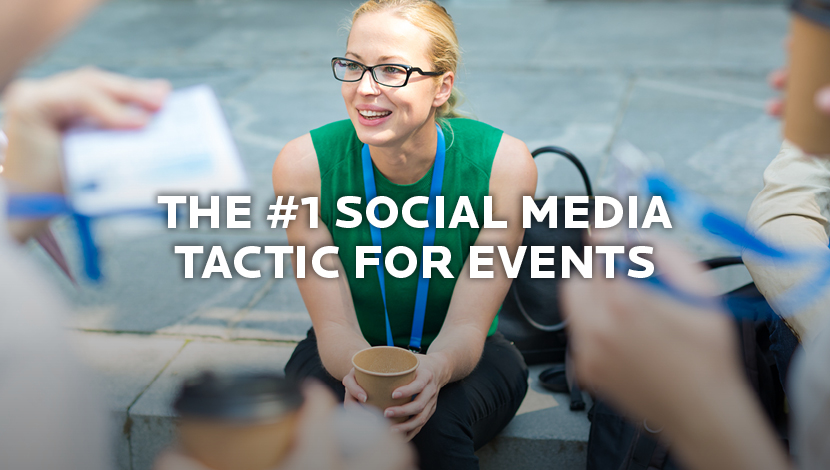
We’ve seen first hand how social media can transform events. One tactic, in particular, can really help you reach your event goals.
Before we share it, we want you to know that as event hosts, organizers and attendees, we’ve seen how well-done social media boosts events. It can:
- Spark more engagement
- Improve interactions
- Gather real-time questions and feedback
- Manage customer service issues
- Generate future social media content
The one tactic that will really take your events to the next level? A team of people absolutely dedicated to social media for the event. For instance:
- Prior to the event, you must carefully monitor event listings on social media and promptly respond to questions.
- During the event, ensure you have trained staff members to community manage social media, interacting with posts and sharing content.
- Also during events, empower your social media team to quickly handle issues such as schedule shifts, lost and found and other questions.
- After the event, your social media team members will want to follow-up with speakers, sponsors and key participants to continue building engagement—and start planning the next event.
Here are other guidelines we’ve found most effective as you put together your next event.
Before the event
As soon as an event is planned, here are steps to incorporate social media:
Craft your social media event strategy. Ensure that your social media event objectives are in line with overall event goals. In our experiences, here are some areas where social media can impact and improve your event:
Sales or membership: If a key goal is to increase prospects, attract members, key leads or even complete actual sales during the event, plan your channels and content to provide useful, valuable information.
Engagement and feedback: Social is the perfect tool to get people involved before, during and after events. Tap in to conversations and consider live polls, real-time Q&As and live streaming with online message boards.
Determine which tools you’ll use. Some options worth exploring: Facebook Live, CoSchedule, Buffer, Hootsuite, Feedly, Animoto, Brandwatch, SocialRank, Everwall are all options worth exploring.
Establish connections
- Collaborate with public relations team members.
- Partnering with other companies? Get all social media representatives together early and often.
- Create an event on your Facebook page, Eventbrite (where you can also sell tickets or gather registrations) or LinkedIn (for business events). Consider using the co-sponsored event options. Shift your cover images/videos promoting the event.
- Use paid social such as Facebook Event Response and Traffic ads, Instagram ads, Snapchat ads, Twitter ads, LinkedIn promoted posts, and/or Pinterest promoted pins targeted to specific audiences with content that will resonate. Consider offers for early bird, group or first-time registrations.
- Socialize these connections: Ensure you’re connected on social with all the speakers, presenters, sponsors and key attendees. Maximize the features of each channel: For instance, create Twitter lists for ease of use.
- Create a short, memorable hashtag for your event, share it with event speakers and sponsors, and use it early and often on all event materials.
- Consider creating a Snapchat geo filter for your event.
Build the buzz
Take people behind the scenes as your event approaches. Facebook, Snapchat and Instagram are excellent hosts for this content. Use quotes from speakers, images, short videos and answers to commonly asked questions to build excitement about the event.
During the event
Be “in the moment” to capture information. If at all possible, have social media team members right at the event. Share your planned content of ideas and moments to share, yet be open to others as they happen. Interact with attendees’ real-time posts during the event.
Capture a moment and go with it; remember the power of simplicity. Make your content easy to share on social media, and ensure you tell the story all through the event in case people tune in late.
After the event
Create a social media analysis of what worked best, gaps to address and opportunities for your next event. Continue to look for opportunities and use your findings to build relationships with influencers and partners. Most of all, remember to keep at least one person dedicated to monitoring social media related to your past events. It makes planning your next great event more efficient and leads to a more successful event.
Need help with social media for your next event? Reach out to us on social media or email us.
